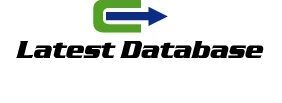The recent changes of Google have begun to be noticed in the webs that handle sensitive information, especially in those in which economic transactions are carried out: banking and ecommerce especially. buy youtube views If these pages do not have an up-to- date HTTPS certificate, they will be identified as unsafe and this will undoubtedly have a negative effect on the sales of any ecommerce.
That users have a good experience on the Internet is the main objective of Google , and one of the most important factors to achieve this is security. They themselves have served as an example for a long time having all their websites with HTTPS (Secure Hypertext Transfer Protocol).
With the arrival of Chrome 56 , all websites that store sensitive information (passwords, bank details, personal user data …) have already been labeled as unsafe (a red warning triangle will appear next to the URL of the website) if they do not have the corresponding SSL certificate , which is essential to be able to use HTTPS . But Google as always thinks big, extending this control little by little to all websites including blogs.
Is it mandatory to use HTTPS?
It is not mandatory, but when a user accesses your page or blog you will find a warning that the website is not secure. And if anything worries every Internet user is security. If you are an online store this can affect you even more negatively. Who would leave your bank details on a website designated by Google as Non-secure?
How is the SSL certificate obtained?
The SSL certificate can usually be obtained through your hosting provider, and in most cases they themselves will take care of all the management.
What should I keep in mind when the migration is done?
To all effects, changing from HTTP to HTTPS will be considered by Google as transfer of domain in which the URL of the web is changed . This implies that we must ensure that we carry out thenecessary 301 redirections . For this we can do it from the htaccess file .
If we do not do the redirects 301, Google could consider (surely it would) that it is a new page with duplicate content (with the corresponding penalty in SEO).
We must also use Google Search Console to check all internal links to redirect them and verify that they are not broken. We will take advantage of the visit to the webmaster platform of Google to register the new domains and update the sitemaps .
How does Chrome 56 affect SEO on the web?
Surely the pages with SSL and HTTPS will have SEO advantages over those that do not comply with these security standards. At the time of migration, the positioning in the SERPs will be affected temporarily until the robots of Google return to the page to index it.
Some people usually use a ping plugin for Google Chrome as Mass Fast Pinger to invite search engine bots to visit the page, but their efficiency is not really proven. Nothing is lost for trying it since it is a totally free service at the moment.
What type of SSL certificate is recommended?
Google recommends us to use the 2048 bit SSL certificate . Also have a trusted Certification Authority (CA) . Depending on the type of service offered on the web, the type of SSL certificatemay vary.
The different types are the following:
- SSL Shared Certificate: they are free and ideal for a simple web or a blog. Not recommendable for an ecommerce.
- SSL Domain Validated Certificate: will guarantee the user that they are really in the domain with which they believe they are communicating. They are the cheapest after the free, and have a cost of € 10 a year.
- SSL Company Validated Certificate: has a cost of € 50 per year and in addition to validating the domain, they must also validate the company’s data. The user will not only have the certainty that he communicates with the correct domain, but the associated company is also the correct one.

- SSL Extended Validation Certificates (EV): this certificate has a price around 80 € per year, but it is the one that will provide us with a nice green bar in the address bar. It is the most requested certificate but also the one that requires the most validation requirements, both from the domain and from the company. The large multinationals and ecommerce are the main companies interested in obtaining this type of certificate.
- SSL Wildcard Certificates: its cost is around € 290 per year and is ideal for use on pages with subdomains at different levels, guaranteeing the security of all of them with a single SSL certificate.
- Mult-domain Certificates: they act in a similar way to the previous ones, but for different .com, .es, .net, .info domains … it has an approximate price of € 150 per year.
Updating is not mandatory, but experience tells us that if you do not update, you stay behind and the one who is ahead will always take away almost all the glory.
Do you have your website updated? Have you had problems with the migration? How has SEO affected you?
If you do not know how to do it,
